
JOURNAL OF EXPERIMENTAL & THEORETICAL ARTIFICIAL INTELLIGENCE
metrics 2024
Pioneering Research in the Realm of AI and Computer Science
Introduction
The Journal of Experimental & Theoretical Artificial Intelligence, published by Taylor & Francis Ltd, serves as a premier platform for researchers and professionals interested in advancing the fields of artificial intelligence, software engineering, and theoretical computer science. Established in 1989, this peer-reviewed journal features original research and comprehensive reviews that explore innovative methodologies and emerging trends within these dynamic domains. With an impact factor that reflects its relevance, the journal currently ranks in Q3 across its categories, affirming its contributions to the scholarly community. The journal's commitment to quality and rigor invites submissions that bridge experimental and theoretical frameworks, thus fostering a deeper understanding of AI's applications and implications. Researchers and students can access insightful articles that drive critical discussions and inspire future work, making this journal an essential resource for anyone looking to delve into the complexities of artificial intelligence and its surrounding disciplines.
Metrics 2024
 0.51
0.51 1.70
1.70 1.80
1.80 52
52Metrics History
Rank 2024
Scopus
IF (Web Of Science)
JCI (Web Of Science)
Quartile History
Similar Journals
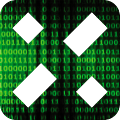
SoftwareX
Connecting Researchers to Transform Software PracticesSoftwareX is an innovative open-access journal published by Elsevier that has been championing advancements in the fields of Computer Science and Software since its inception in 2015. With a focus on presenting high-quality research, SoftwareX aims to foster collaboration and knowledge exchange among researchers and practitioners, advancing the way software and tools are developed and disseminated within the community. This journal operates under a flexible access model, allowing broad visibility and accessibility to its diverse readership. Positioned in the Q2 and Q3 quartiles of the Scopus ranking system within the domains of Computer Science Applications and Software respectively, SoftwareX stands as an influential platform for sharing cutting-edge methodologies and innovations. The journal's aim is not only to serve as a repository of knowledge but also to embolden practitioners and scholars alike to engage with and implement findings that can accelerate progress within the realms of software engineering and application. Situated in Amsterdam, Netherlands, SoftwareX has embraced an international reach, welcoming submissions that address complex challenges through novel software solutions.

MACHINE LEARNING
Fostering Dialogue in the Evolving AI LandscapeMACHINE LEARNING is a premier academic journal published by SPRINGER, dedicated to advancing the field of artificial intelligence and software engineering. Established in 1986, this journal has consistently showcased pioneering research and innovative methodologies that facilitate the understanding and application of machine learning techniques across various domains. With an impressive impact factor reflecting its high-quality publications, it is classified within the top quartile (Q1) in both Artificial Intelligence and Software categories as of 2023, underscoring its critical role in these fields. The journal boasts significant Scopus rankings, placing it at the 45th and 54th positions, respectively, in Computer Science - Software and Computer Science - Artificial Intelligence, further validating its stature as a vital resource for researchers, professionals, and students alike. While not an open-access journal, MACHINE LEARNING ensures that its comprehensive peer-reviewed articles are widely circulated, fostering academic dialogue and innovation. The journal continues to be a go-to platform for cutting-edge research, providing invaluable insights and contributions that drive the future of machine learning.
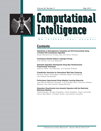
COMPUTATIONAL INTELLIGENCE
Driving Innovation in AI and Computational MathematicsCOMPUTATIONAL INTELLIGENCE is a prestigious, peer-reviewed journal published by Wiley, dedicated to advancing the field of artificial intelligence and computational mathematics since its inception in 1985. With an impressive track record reflected in its Q2 ranking in both the Artificial Intelligence and Computational Mathematics categories for 2023, this journal is a leading resource for researchers, professionals, and students seeking to explore cutting-edge methodologies, theories, and applications that underpin computational intelligence. The journal is indexed in Scopus, holding a remarkable rank of 18/189 in Computational Mathematics, placing it in the top 10% of its field, and ranks 111/350 in Artificial Intelligence. Although it does not offer open access, articles are readily accessible for institutions, ensuring a wide outreach within the academic community. With its commitment to fostering innovation and critical thought, COMPUTATIONAL INTELLIGENCE continues to be an essential platform for disseminating high-quality research that shapes the future of technology and mathematics.
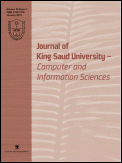
Journal of King Saud University-Computer and Information Sciences
Exploring the Frontiers of Computer and Information SciencesJournal of King Saud University-Computer and Information Sciences, published by ELSEVIER, is a prestigious open-access journal focusing on the rapidly evolving fields of computer science and information technology. Since its inception in 1996, this journal has provided a platform for high-quality research and innovative ideas, promoting the dissemination of knowledge to a global audience. With a remarkable impact factor and ranked Q1 in the Computer Science (miscellaneous) category as of 2023, it stands among the top 11% of journals in its field, reflecting its commitment to excellence and relevance. The journal proudly carries the ISSN 1319-1578 and E-ISSN 2213-1248, and it is based in Saudi Arabia while being part of a global academic network. With a Scopus rank of #26 out of 232 in general computer science, the Journal of King Saud University-Computer and Information Sciences is an essential resource for researchers, professionals, and students seeking to stay at the forefront of technological advancement. As it continues to thrive through 2024, it invites contributions that will shape the future of computing and information sciences.

PROGRAMMING AND COMPUTER SOFTWARE
Advancing Software Development Through Rigorous ResearchPROGRAMMING AND COMPUTER SOFTWARE is a distinguished journal committed to advancing the field of software development and programming methodologies. Published by PLEIADES PUBLISHING INC, this journal has been a valuable resource since its inception in 1978, reaching out to researchers, professionals, and students alike. With an emphasis on rigorous peer-reviewed articles, the journal holds a Q3 ranking in the realm of Software according to the latest 2023 Category Quartiles. Though it does not offer open access, the journal ensures that high-quality research is disseminated to its audience, providing insights into evolving programming techniques, software engineering challenges, and innovative solutions. With its convergence of years extending to 2024, PROGRAMMING AND COMPUTER SOFTWARE remains a pivotal publication, fostering a deeper understanding of the complexities in computer programming while supporting the broader software community.
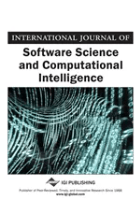
International Journal of Software Science and Computational Intelligence-IJSSCI
Empowering Researchers in the Realm of Software ScienceInternational Journal of Software Science and Computational Intelligence (IJSSCI) is a prominent academic journal published by IGI Global, dedicated to advancing the fields of software science and computational intelligence. With its ISSN 1942-9045 and E-ISSN 1942-9037, IJSSCI offers a platform for researchers, practitioners, and students to disseminate innovative research findings, theoretical advancements, and practical applications in areas such as algorithm development, machine learning, and software engineering. Although the journal currently does not operate under an open access model, its rigorous peer-review process ensures high-quality publications that contribute significantly to the academic discourse. Based in Hershey, PA, IJSSCI is recognized for its commitment to fostering collaboration among professionals in the technology and computer science fields, making it an essential resource for those looking to stay at the forefront of software science advancements.

ANNALS OF MATHEMATICS AND ARTIFICIAL INTELLIGENCE
Transforming Theoretical Insights into Practical IntelligenceThe ANNALS OF MATHEMATICS AND ARTIFICIAL INTELLIGENCE, published by Springer, is a prominent journal dedicated to exploring the intersection between mathematics and artificial intelligence. With an ISSN of 1012-2443 and an E-ISSN of 1573-7470, this esteemed publication has been at the forefront of groundbreaking research since its inception in 1990, converging its focus to address emerging trends through 2024. Currently categorized in the Q3 quartile for both Applied Mathematics and Artificial Intelligence as of 2023, it holds respectable ranks within Scopus, positioning itself as a vital resource for scholars with a rank of #228 in Applied Mathematics and #217 in the realm of Artificial Intelligence. Notable for its commitment to advancing theoretical and applied methodologies, this journal serves as an indispensable platform for researchers, professionals, and students keen to deepen their understanding and innovate within these domains. Although it does not operate under an open-access model, the journal emphasizes rigorous peer-reviewed scholarship, ensuring that each published article contributes significantly to the global dialogue on number theory, machine learning, and their multifaceted applications.

NEW GENERATION COMPUTING
Empowering Innovation in Computer ScienceNEW GENERATION COMPUTING is a prominent academic journal published by SPRINGER, specializing in the dynamic fields of Computer Networks, Hardware and Architecture, Software Engineering, and Theoretical Computer Science. With a commitment to disseminating high-quality research since its inception in 1983 and extending its coverage to 2024, this journal occupies a vital role in advancing knowledge and innovation within these critical domains. Holding prestigious Q2 rankings in Computer Networks and Communications, Hardware and Architecture, and Software, as well as a Q3 ranking in Theoretical Computer Science for 2023, NEW GENERATION COMPUTING attracts significant contributions from scholars and professionals around the globe. Researchers will find its rigorous peer-review process ensures the publication of impactful studies, while students gain access to cutting-edge research that shapes contemporary computing practices. Though it does not offer open access, the journal remains an invaluable resource in the academic community, fostering collaboration and dialogue among experts aiming to push the boundaries of technology.
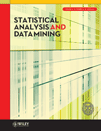
Statistical Analysis and Data Mining
Empowering Researchers with Cutting-Edge MethodologiesStatistical Analysis and Data Mining is a leading journal published by WILEY, dedicated to exploring the latest advancements in statistical methods and data mining techniques. With an ISSN of 1932-1864 and an E-ISSN of 1932-1872, this journal serves as a significant platform for researchers and professionals in statistical analysis, computer science applications, and information systems. Covering a wide range of topics from innovative analytical methodologies to emerging data mining algorithms, the journal aims to disseminate high-quality research that contributes to the evolving landscape of data science. Ranked in the Q2 category for the fields of Analysis, Computer Science Applications, and Information Systems in 2023, it emphasizes its relevance and impact within academia. While it offers limited Open Access options, the insights shared in this publication are integral for those wishing to stay ahead in fast-paced research and data-driven industries. Since its inception in 2008 and continuing through 2024, Statistical Analysis and Data Mining invites submissions that reflect rigorous empirical research coupled with practical implications, making it a vital resource for the academic community.

IEEE Computational Intelligence Magazine
Innovating the Future of Artificial Intelligence ResearchIEEE Computational Intelligence Magazine, published by the esteemed IEEE-INST ELECTRICAL ELECTRONICS ENGINEERS INC, is an essential resource for researchers and professionals in the fields of Artificial Intelligence and Theoretical Computer Science. With a robust Q1 ranking in both categories for 2023, this magazine stands out as a leader in disseminating cutting-edge research and innovative applications within computational intelligence. As an invaluable conduit for knowledge, it covers a diverse range of topics, including but not limited to machine learning, neural networks, and data mining. The magazine is particularly recognized for its interdisciplinary approach, bridging gaps between theory and application while contributing to advancements in technology and society. Although it does not offer open access, the insights provided are critical for staying at the forefront of this rapidly evolving discipline. Join a community of like-minded scholars and practitioners by exploring the latest findings and trends published from 2006 to 2024, operating from its headquarters at 445 Hoes Lane, Piscataway, NJ, United States.